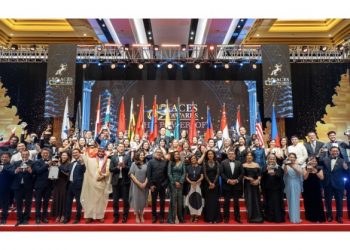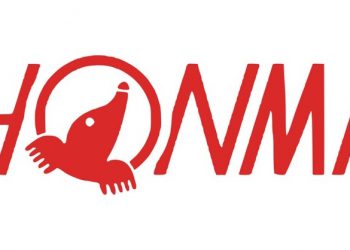By Ivy Masale
The year 2025 marks a defining moment for South Africa’s transport sector, with the launch of the inaugural National Transport Conference, which is scheduled to take place from 6 – 8 October 2025 in Gauteng.
Hosted by the Department of Transport, this landmark event brings together government, State-owned enterprises (SOEs), private businesses, academia and civil society in one unified conversation.
For the first time, all stakeholders in the transport ecosystem will gather under one roof to exchange ideas, align strategies, and shape the future of mobility across aviation, rail, road, maritime and public transport.
Transport is more than movement: it is the lifeblood of economic growth and social connection.
It links rural communities to markets, supports trade across borders, and fuels development in cities. Yet, the sector faces mounting challenges. Infrastructure is under pressure and requires modernisation.
Passenger rail, once the backbone of public transport, must be restored to full service. Ports need to achieve world-class operational standards. Road fatalities remain unacceptably high. At the same time, technology is changing how goods and people move, and sustainability demands innovative, green solutions.
Addressing these challenges requires bold thinking and collaboration. It demands a shared national agenda where every role-player — government, industry, academia, and investors — works in step.
Until now, South Africa has hosted numerous successful conferences on transport — from the Southern African Transport Conference to the Africa Rail and the Smarter Mobility Summit. These forums have produced valuable insights, but discussions often remain within specific sectors. The absence of a unifying platform has made it difficult to consolidate recommendations into a coherent national strategy.
The National Transport Conference changes this. It is not here to replace existing events but to complement and amplify them. It creates a single forum where knowledge converges, and where ideas can be turned into policies, partnerships and solutions that impact the entire country.
This strategic step by the Department of Transport reflects government’s commitment to transforming mobility in ways that boost economic competitiveness, improve safety, create jobs and advance sustainability.
It also aligns with the priorities set out by the Minister of Transport, Barbara Creecy for her term of office–revitalising rail, expanding air and freight capacity, improving port efficiency, reducing road fatalities and positioning rail as the backbone of transport. These ambitions are not abstract targets; they are performance commitments aimed at unlocking opportunity for millions of South Africans.
Delegates can look forward to a dynamic programme that includes high-level keynote sessions from government leaders, industry executives, including global transport experts.
Discussions will explore critical themes such as restoring passenger rail services and expanding freight volumes to reduce road congestion and support economic growth, leveraging digital innovation and intelligent transport systems, unlocking investment through public-private partnerships, improving road safety in line with global targets and implementing low-emission transport solutions to reduce environmental impact.
Breakaway sessions will give participants a chance to engage deeply with specific challenges. Researchers can share findings that inform policy, while practitioners can explore practical solutions to accelerate implementation. Exhibitions will showcase innovative transport technologies–from electric buses and smart ticketing systems to logistics optimisation tools and green aviation solutions.
The future of transport
This conference is for everyone who has a stake in South Africa’s transport future. Researchers will gain a platform to present studies that influence national policy. Businesses will discover opportunities to partner on infrastructure projects or introduce new technologies.
Transport operators will access critical insights on regulations, funding models, and innovation. Academics will find networks for collaboration. Policymakers and officials will strengthen ties with global thought leaders and learn from best practices.
Beyond the professional value, the conference offers unparalleled networking opportunities. It is a chance to meet decision-makers, investors, and innovators–all under one roof–discussing how to build a transport system that works for the economy and for people.
This is not just a dialogue; it is a platform for action. The conference will adopt a National Transport Agenda — a strategic framework that sets out key priorities for the year ahead and aligns with government’s developmental objectives.
Delegates will contribute to a formal declaration and an actionable roadmap to ensure follow-through on commitments. These outcomes will also inform the October Transport Month campaign, linking dialogue to implementation timelines.
Capacity-building workshops will provide training opportunities to strengthen skills across the sector. Knowledge-sharing sessions will highlight global best practices that can be adapted to local realities. Public-private partnerships will be fostered to unlock investment and resources for large-scale projects.
The ultimate goal is a transport system that is integrated, efficient and sustainable. One that supports economic growth, connects people to opportunities, and enhances safety and accessibility for all.
The launch of the National Transport Conference signals a new era of partnership and progress.
It is an opportunity to move beyond fragmented conversations and towards a shared vision for mobility. For government, it is a platform to lead transformation. For industry, it is a chance to invest in growth. For citizens, it promises a future where transport is safe, affordable and reliable.
South Africa stands at a pivotal point in its journey to reimagine mobility. The question now is not whether change will come–but how fast and how well we can make it happen. The National Transport Conference is where that future begins.
*Masale is the Media Relations Assistant at the Department of Transport.











